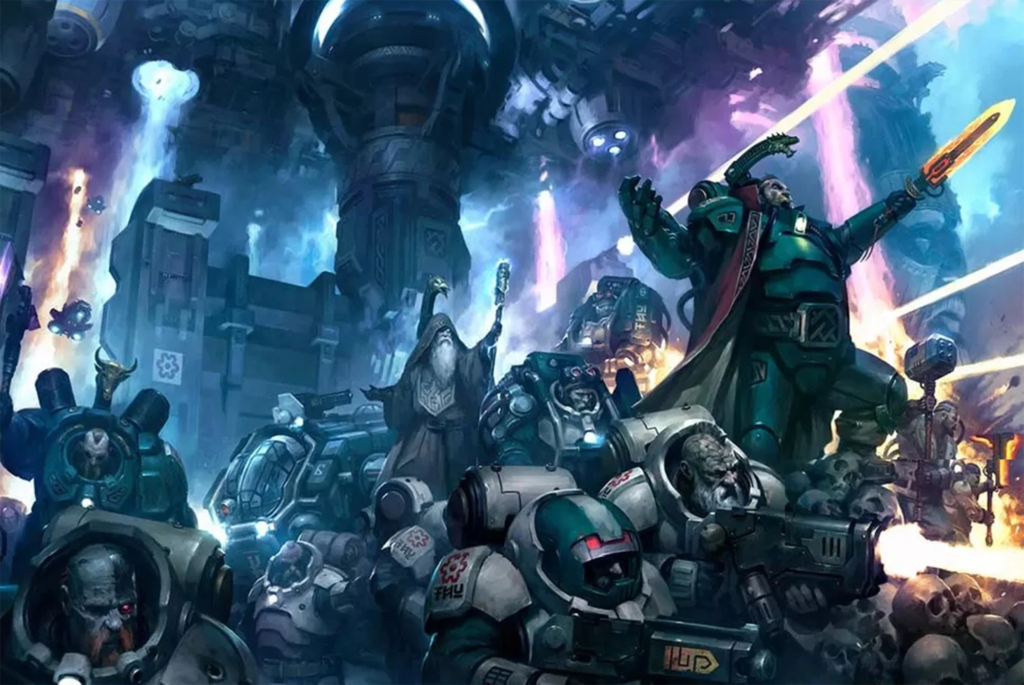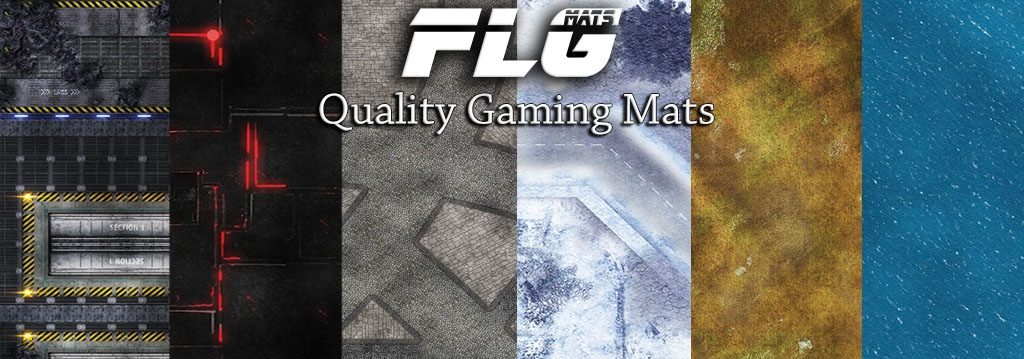So the moment has, come the next edition is on the horizon. As we reach the end of 9th edition I think it’s time to consider how the game changes after 8th and what its lasting legacy will be. In this article I will explore some of the major themes of the edition and how I think it will be viewed in future years.
How it All Started:
I think you need to go back to the end of 8th edition to understand 9th. 9th edition came onto the scene in 2020. This was the year of the infamous Iron Hands Levi dread list. A, pretty much, unbeatable list that abused rule loopholes to dominate the table. And these lists highlight some of the limits with 8th. Players would try to max out detachments to get CP. Durability was a big issue as, while some units like the Castellan could dump out damage, units were pretty hard to kill off. There was no limit on hit modifiers, who can forget possessed being able to get a -4 modifier to hit them. For many armies, the goal was to soup in as many different detachments as you could get benefits from, massively favoring factions with many allies.
What Changed
Some of the biggest changes to come to 9th included the capping of modifiers and limits on detachments. The edition was advertised as created with the help of professional gamers in the community, and we were told each book was tested against all others as a way to ensure balance. Another major update was the inclusion of the Crusade system giving narrative players a structure to build campaigns around. Everyone knew the rollout would be different given the pandemic but I think it’s easy to underestimate how much it impacted GW’s plans. I firmly believed GW wanted a rapid codex rollout, with a longer period of updates than they got. They also massively limited the re-roll stratagem and revised the morale and terrain rules.
How it Played:
I really believe that GW did test all or some of the codexes against each other before release. I felt like the Space Marine/Necrons/DG releases were pretty comparable, and everything else that followed was roughly equal (with each other, not the first three books). The one exception might be the Genestealer cults. The big issue is that this system doesn’t work when you have a slow rollout as you get armies lingering without peer adversaries. Thus this edition became known as the one where each new book broke the meta and made the game feel like a flavor of the month contest. GW was forced to either heavily nerf new releases or speed up their codex schedule which was impossible. Thus you got armies dominating in waves until the Votann came and broke the game before release.
In many ways, the game kinda felt like it was designed by pro players. In that, it featured lots of intricate combos that would only appeal to players who did nothing but play this game. You could extract immense buffs by stacking stratagems, faction traits, and auras but these were usually byzantine in nature and exhausting to track.
Ironically, the narrative games system followed a similar path but did not suffer as much for it. Crusade rules quickly grew in complexity (there is another clear break between the books released up to the Death Guard and those afterward). While this overloaded some players at events it did provide a lot of great narrative options and fun moments. The campaign supplements remain some of the most valuable items a narrative GM can own even though many of the missions are very unbalanced. Despite this, I think we have seen the narrative side of the game grows astronomically and now it is much simpler to run these kinds of events.
How it Will Be Remembered:
In the same way that 7th edition represented the total culmination of 6th edition, 9th represents the total culmination of 8th. Many of the initial ideas were taken to their extremes and it burned out the player base. GW tried to add on more customization and player options but the stratagem system broke under the weight. I think the meta will always feel like GW as the dutch boy, desperately stopping holes with whatever appendages are available, just a few seconds behind each time. By amping up the power of every army, they put themselves under a lot more pressure. To stick with the dyke metaphor it was like periodically tossing a boulder in tho the water, even before all the holes were filled. Between the pandemic, and the innovative players, a balance wasn’t really achieved until the Arks of Omen, and accumulated nerfs to planes and CP finally seemed to bring about some good results. Sadly, it feels like the changes to terrain and morale never actually worked. They were either too small or easily mitigated by codex rules.
I think GW did shake things up by becoming more responsive to players during this edition. It felt that, with certain exceptions, any super-powerful army was addressed in a few months. While this exacerbated the issues with the meta feeling “flavor-of-the-month-y” it did show a level of commitment. I believe there were and are, some complaints with GW’s ability to stock its products as scalping remains rampant and GW’s warehouse robots have been disastrous. However, I feel that players have more faith in GW going into 10th than going into 9th.
I think many players feel some sense of trepidation as we look to the future. The fact that we need another hard reset after two editions is troubling. GW needs to figure out how to manage their game better. I think they have a good FAQ system down, but if their rules team keeps maxing out the boundaries of the game with each new book it will quickly break any core rules. GW can only reset all books so often before players stop investing in written rules. It seems like they are moving more digital in 10th which might help the issue but only time will tell.
II think, overall, people will have positive memories of 10th. As a mainly narrative player, there has never been a better time to play. I think we saw peak 40k in terms of streaming options and the growth of the competitive environment and it will be intriguing to watch if the streamlined rules can lure some people back. I think GW will handle the rules in a more in-house manner going forward. I would expect fewer public partnerships on rules testing, which will revert us back to the older issues. However, a more responsive GW might be able to overcome these. I am hopeful, and I think that’s a pretty decent place to be in as we go forward.
And remember, Frontline Gaming sells gaming products at a discount, every day in their webcart!







I think the big thing for GW to remember is that the core rules are generally decent. Not great, but they do the job. It’s when codexes get released that the problems arise. This became particularly apparent with the creation of detachments and stratagems, but this codex issue has existed since 3rd (possibly 2nd, but I wasn’t there for it).
When GW says that they test all the codexes against each other, I consider that a downright lie. The squat release was a perfect example, but you can pretty much point at any release after the initial three to get an idea of how things got out of hand.
For example, I used to think (from 3rd to 6th ed) that degrading armour would be a superior method to the binary pass/fail system. But when you get basic weapons with AP-1, things are clearly not going to work (then you end up with AoC to counter it). AP should be rare. Alas, codexes pushed the increasingly potent stat lines of models and weapons.
From a broader perspective, there was the shift in focus from “everything dies” to “we can’t have everything die so fast” and gradually swinging back to “everything dies”. GW needs to pick a lane and stay in it.
I do not like playing 9th edition. Too many gotchas, too many layered rules, too many ways to ignore rules. Then there’s not enough benefit for positioning (eg, vehicle facings), no real effect of morale (though GW has always struggled with that), and not enough meaning attached to weapon types (weight of fire is ALWAYS better than quality, thanks to 6’s automatically hitting/wounding).
I look forward to when 10th comes out – hopefully the refresh makes me actually interested in playing the game, rather than playing it just to scratch the itch of a friend of mine.
Ahh, but I appreciated you scratching my itches!